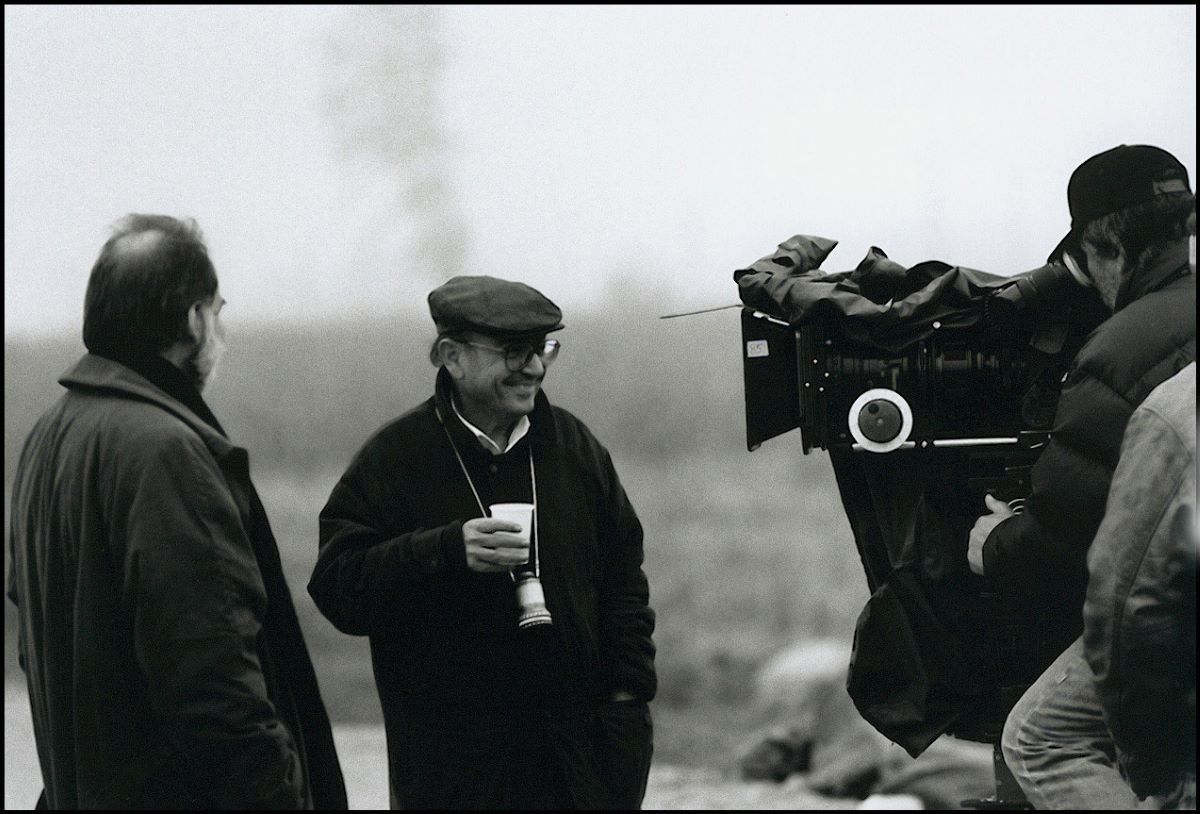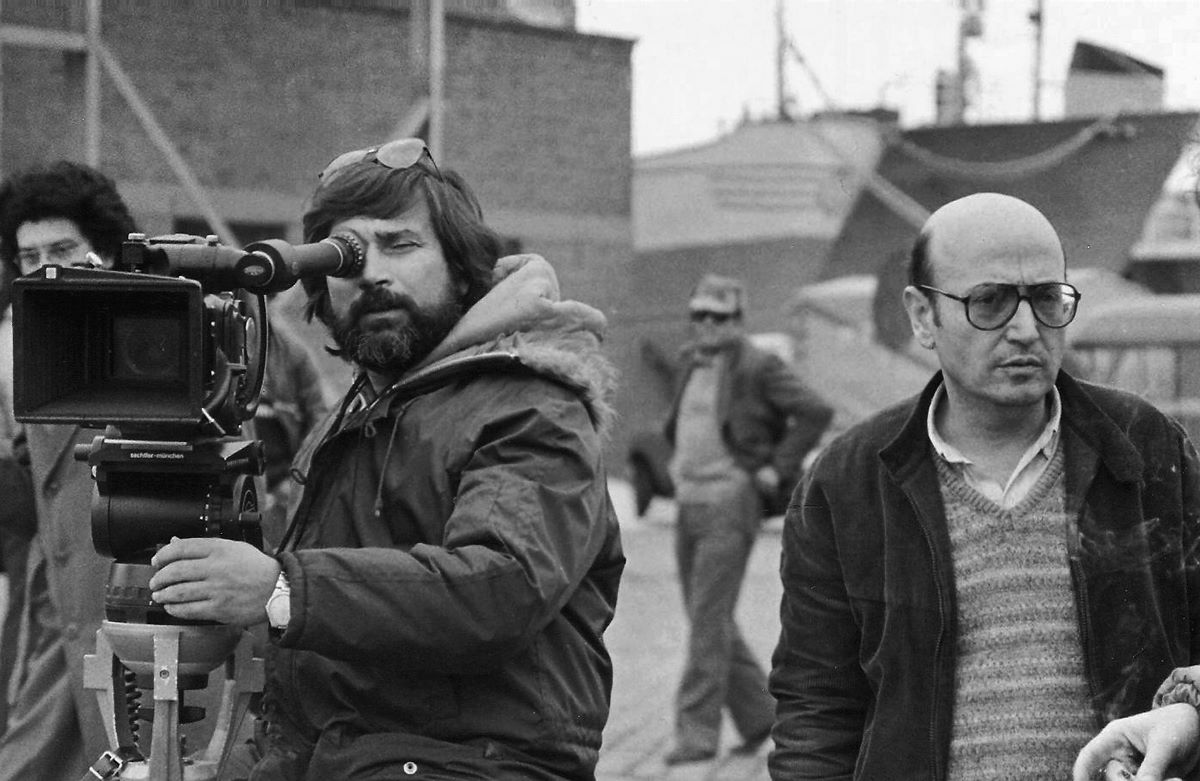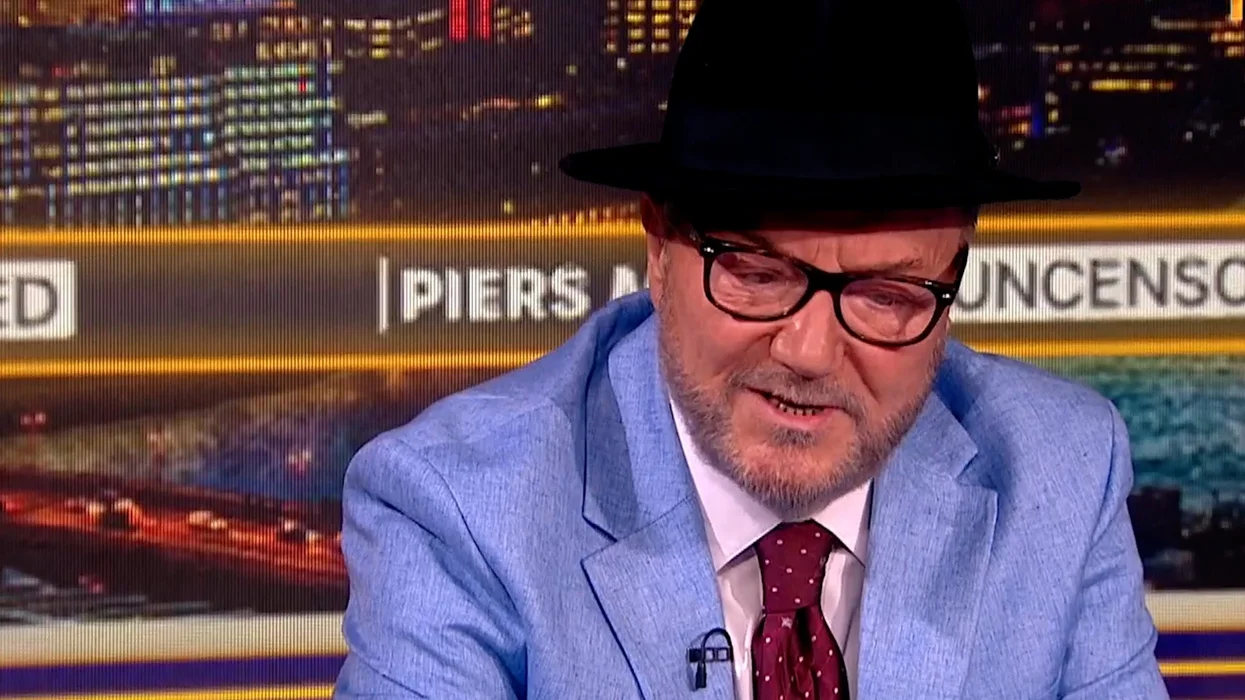by Guy Flatley
Martin Scorsese said goodbye to God a long time ago. But you’d have a devil of a time selling that story to the stewardesses on the plane that recently carried him here from his home in Hollywood.
“Every time I get on an airplane,” Scorsese admits, “I know I’m not really an atheist. ‘Oh God. dear God,’ I say the minute the plane takes off, ‘I’m sorry for all my sins, please don’t let this plane crash.’ And I keep praying— out loud—until the plane lands.”
Now that the plane has landed and God is dead again, the short, intense Italian-American is free to sit in the placid safety of his Pierre suite and pursue the one subject which, for him, truly smacks of divinity. That subject is movies — from Griffith’s Broken Blossoms to Rossellini’s Stromboli to Fuller’s I Shot Jesse James to Scorsese’s Alice Doesn’t Live Here Anymore.
Scorsese’s who? Alice Doesn’t Live Here Anymore is the 31-year-old director’s new movie, one which will star Ellen Burstyn as a would-be nightclub singer who makes a wild and woolly adjustment to widowhood. In fact, Scorsese has scurried to New York for the sole purpose of scouting up suitable suitors for the freshly liberated lady. One of Alice’s more ardent admirers — a gentle-seeming bachelor who turns out to be a married maniac—has already been cast, however. That sickee will be played by Harvey Keitel, who scored in Scorsese’s 1969 film, Who’s That Knocking at My Door?, and in Mean Streets.
Mean Streets, of course, is the Scorsese sleeper which shook up the critics when it unspooled at the recent New York Film Festival and which is now serving the customers at Cinema 1 a gut-raw, yet strangely operatic, slice of life among the small-time thugs and spiritual misfits of New York’s Little Italy.
Cinema for the squeamish it isn’t. Cars screech, guns blast, women wail, men vomit, fists pound with speed and fury. And we sense the futility, we know that all those dumb, pathetic figures parading defiantly across the screen are doomed by the violence in and around them. We know exactly how far Charlie, a young and dangerously softhearted hood, will get in his frantic effort to protect Johnny Boy, his mush-brained buddy, from vengeful assassins.
Yet, in the end, we are jolted when — together with Charlie’s epileptic girlfriend Teresa — they are bloodily ambushed trying to escape across the Brooklyn Bridge. (The half-pint, dark-eyed Sicilian who pulls the trigger is played by Scorsese himself—a bit of self-casting which may have proved meaningful to Dr. Robert Kahn, Scorsese’s California analyst, whose therapeutic talents are gratefully acknowledged in the film’s closing credits.)
Mean Streets may not be pretty, but — according to its maker — it is true to ghetto life. The character of Charlie, with his priest-spawned feelings of guilt, is based partly on Scorsese himself and partly on a close friend who still lives in Little Italy. The wild and vulnerable Johnny Boy, too, is real — though, like Scorsese, he has fled far, far from his native turf. Were it not for Scorsese’s insatiable appetite for movies, however, it is conceivable that he would be dwelling today down on Elizabeth Street, where his parents were born and still live and where he himself grew up — a frail, asthmatic boy doing his best to keep pace with one of Little Italy’s more rambunctious gangs.
Unlike Charlie in Mean Streets, Scorsese managed to remain on the straight side of the law. “We weren’t that kind of gang. There was a lot of horsing around, but we seldom got into real fights. We were more into the social thing, hanging out in bars, picking up girls. By the time my friends and I were 12 or 13, we were drinking an awful lot of hard liquor.”
What about hard drugs? “Never. We didn’t even smoke pot. We thought it was as bad to use drugs as it was to sell them. I still feel that way, although I do try a little grass now and then. But I can’t really smoke, because of my asthma. But never the hard stuff. That was the major point of accuracy in The Godfather. The mafia looks down on pimps and drugs.”
One or two critics looked down on Mean Streets, calling it a low-budget copy of Francis Ford Coppola’s monumental look at the mafia. “Mardik Martin and I wrote the screenplay for Mean Streets seven years ago, so we could hardly have been influenced by The Godfather. We weren’t trying to do the same sort of thing at all. Francis Coppola made an epic Hollywood picture, an old-fashioned movie—in the good sense—like Gone With the Wind, only better.”
Nor were those Corleone kids noticeably churned-up by memories of their Catholic boyhoods. Scorsese, on the other hand — like the scrupulous protagonist of Mean Streets — did not take church dogma and liturgy lightly. “My friends used to say, ‘Jeeze, Marty, do you really believe all that stuff the priests tell you?’ Well, I did believe it, every word of it. I wouldn’t touch meat on Friday, and I believed I would go to hell if I missed Mass on Sunday. As a matter of fact, I went into the seminary after grade school, but they threw me out at the end of my first year for roughhousing during prayers. They thought I was a thug.”
Scorsese was crushed, but he managed to thug and chug his way through Cardinal Hayes High School in the Bronx, still cherishing the dream of one day becoming a priest, a dream he continued to dream at NYU — until the day he stumbled upon the film department. “1 was bitten, and the whole vocation thing shifted.”
It shifted so drastically that Scorsese was soon turning out stunning student films and, eventually, he taught a course in filmmaking at NYU. During the sixties, he also worked as a news editor at CBS, shot commercials and served as supervising editor on Woodstock. Finally, in 1968, he wrote and directed his first feature, Who’s That Knocking at My Door? Like Mean Streets, Scorsese’s maiden movie probed the psyche of a sensitive young Italian-American drifter, an emotional cripple whose relationships were poisoned by prejudice.
“It’s the ghetto that creates prejudice,” Scorsese says. “I can remember when I was 5 and my brother was 12, we were walking down the street one day and suddenly we saw a big crowd of people. They were standing around a man who had fallen, and his head was bleeding. My brother took a look at him, and then he turned to me and said, ‘Oh, he’s only a Jew.’ And that is one of my earliest memories.
“We hated the Irish, too, because of the Fifth Precinct. It was unheard of for any of us to call a cop, unless it was to give him some graft. Cops were always Irish, always drinking, and always had their hands out. We used to bribe them so we could play stickball in the street. It’s still that way— believe me, Serpico only skimmed the surface.”
Is it possible that Mean Streets overstresses the seamy side of life in Little Italy? There must be some decent, hardworking people living there. “Sure — the majority of the people in Little Italy are decent, hardworking people. My parents are over 65 and they’re still decent, hardworking people. My mother worked in the garment center for over 30 years, and because there was some switch in management, she’s no longer eligible for retirement benefits. Now she’s going around to job interviews.
“But there is also this milieu of young turks. Some people are shocked that these guys are running around, buying and selling hot stuff. But I’m not shocked —I’ll buy tooth paste from them for 19 cents instead of 50 cents. Why not? It’s not as if they’re dealing in heroin. And don’t forget, even numbers runners are hardworking guys.”
Scorsese never sold hot tooth paste and he never ran numbers. What he did was he went to NYU, found himself a nice girl who was part Irish and part Jewish, and he settled down to a life of domestic bliss. But the bliss was brief and his former wife now lives in New Jersey with her second husband, and with Scorsese’s 8-year-old daughter Catherine.
“In a way, I guess my marriage was a form of rebellion. Up to that time,
I had been dating a Sicilian girl and, to this day, that girl is very close to my parents. I got married in Saint Patrick’s Cathedral in 1965, and I left the church not long after that. There were problems about mortal sin, certain sexual things. But what really did it was sitting in a church in Los Angeles and hearing a priest call the Vietnam war a holy war.”
Scorsese’s own sense of rage over Vietnam was eloquently reflected in Street Scenes 1970, his documentary about antiwar protesters. Yet he feels that Mean Streets is by far his most political film. “Mean Streets shows that organized crime is similar to big government. They’re both machines. In the Sicilian culture, we learned never to expect much from the government, having been trod upon by one government or another for some 2,000 years. That is why the family is the unit we always look to for strength.
“Still, that does not mean that I should sit back without making a protest. There has been more underhanded stuff done in Washington than we’ll ever be able to fathom. It’s almost been worth two terms of Nixon to find out just how things work. Peter Boyle caught on to Mean Streets. We were at a party in Hollywood recently, both of us drinking a lot, and he came up and grabbed me by the arm and said, ‘Hey, you really slipped it in under them, didn’t you? No sermon, nothing. You just showed them that our whole way of life in this country has been leading to one place and one place only—Watergate.'”
But there is more to life than politics and movies, which is where pretty Sandra Weintraub comes in. “Sandy will be working very closely with me on Alice Doesn’t Live Here Anymore. She’s actually like an associate producer— she starts at the very beginning of a film, discussing dialogue with me and making suggestions for casting. It was Sandy who suggested David Carradine—whom I had directed last year in Boxcar Bertha—for the small role of the man who gets murdered in the bar in Mean Streets. People say I’m giving Sandy a job because she’s my girlfriend but the fact is she understands film — she even did some of the editing on Mean Streets — and when you find somebody like that, you should hang on to her.”
Sounds like a match made in movie heaven. Is there any chance they’ll come down to earth long enough to tie the knot? “I’m not sure. What’s the difference, anyway? If you’re with a girl for two or three years, you are married. Of course, it might be different if we wanted children. Sometimes I think it would be nice to have kids, but not in this business. This is such an ego-oriented profession; you deal with yourself first.”
In truth, Scorsese’s ego does not obscure the love he feels for his daughter; he is obviously troubled by their separation. “She lives with her mother and stepfather, she goes to a good private school, and she is happy. The best I can do is pay for her education, and now — since Mean Streets — that’s easier to do. I’ve seen her more this past year than before… but it’s a whole new thing for her, getting used to me. My wife and I broke up when Catherine was 3 or 4. We’ve got to get to know each other. It would be good to have her with me for a month or so.
“Catherine has been into film since she was 5, when I took her into a cutting room and let her operate the movieola,” Scorsese says with fatherly pride. “She knows all about freeze frames, and she even knows films by their directors. ‘I want to see a Dick Fleischer film,’ she’ll say. Her favorite movie right now is The Poseidon Adventure. When she told me that, I said, ‘What? You’re no daughter of mine!.’
“She came to see Mean Streets at the Film Festival. Her stepfather brought her, and I had to get a telephone book for her to sit on. It was a funny thing—she was delighted with the festival itself, the atmosphere of Lincoln Center and all that, but the movie seemed to bewilder her. I don’t think she could follow the story, with everything happening so quickly. Afterward, she was tongue-tied, sort of embarrassed.”
Scorsese himself seems momentarily tongue-tied. “You know,” he say finally, “the only thing she could think to say was, ‘How did you ever get all that blood to work?'”
From New York Times, 16 December 1973




